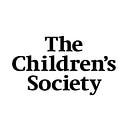Where’s the recovery fund for children’s well-being?
A statement from our Chief Executive, Mark Russell.
The Government have made some big announcements in the last few days. A roadmap out of lockdown, £700m for schools to catch up and budget announcements to extend furlough but I find myself losing sleep as I reflect on the task ahead to help children regain some of what was lost over the pandemic. The announcements are all about catch up, tutoring and education. But any parent, teacher or young person will tell you: the pandemic has taken a toll on so much more than their education.
Every year The Children’s Society publishes the Good Childhood Report which asks children themselves how they feel about their lives and it has shown, worryingly, that children’s well-being in the UK has been declining over the last decade. Our survey with young people during the first lockdown showed that COVID-19 was having a significant impact on their happiness — almost one year on through multiple lockdowns and just one school term spent in classrooms, how will young people have fared?
Frankly we’re aghast that after so much vocal concern from children themselves, parents, and other professionals that the government has focused so heavily on children’s academic success. I am more than disappointed by this lack of thought or consideration for children’s well-being and it’s alarming that there is just no proper strategy or plan in place to meet the scale of the challenge we face.
Children from all backgrounds have been affected by the pandemic, it has been universal. But children that are already vulnerable are of the greatest concern. We know from our practitioners that they are deeply worried about the long-term impact on the most vulnerable young people.
The Children’s Society’s research has shown that children who already live in poverty are more likely to experience low well-being and mental health issues. They are also more likely to perform poorly in education resulting in poorer future prospects. The pandemic has already disproportionately affected low-income families, so these issues are likely to have been exacerbated.
In a recent survey conducted in partnership with various children’s sector organisations including The Children’s Society, Children England, School Home Support and the Children and Young People’s Mental Health Coalition, professionals working on the front line were asked what their main concerns were about the children they work with, and they said this last lockdown has been particularly tough for them. They told us that loneliness was a key challenge as young people found themselves isolated from their friends, schools, and other support systems. They described children struggling with depression, anxiety, trauma symptoms and risk of suicide. One practitioner said that overall ‘there is a real sense of loss here: loss of autonomy, identity, connection.’
These concerns and fears for our young people are terrifying — they speak to the fundamental building blocks of well-being — to connection, interdependence and autonomy and yet the government’s focus is on ‘catch up’. This keeps me awake because success at school won’t come simply from extra tuition. Learning is a lifelong process and we need a narrative that celebrates what children have been able to learn during this time. Children aren’t going to succeed if they are deeply unhappy, struggling with mental health problems developed under lockdown and feeling immense pressure to catch up.
Perhaps it’s because the government looks at exam results and overall attainment as a main way to gauge a school’s performance. Interestingly, the government does not report on or measure what to many parents will be more important: the happiness of our children. For years now the government has measured how happy adults are feeling about their lives, but sadly, children have not had the same consideration.
Measuring children’s well-being now would provide a baseline — and a way for government and others to measure what impact all the recovery measures they are taking are having.
With safeguarding risks, emerging mental health conditions, the effects of poverty and huge gaps in learning schools are going to face extraordinary pressure in the coming months. While the government has provided some funding for staff training, along with all the pressure on teachers to catch their students up, students are going to need more than their teachers can provide. That’s why there needs to be ring fenced funding for schools to spend now on well-being support for their pupils, such as extra staff, equipment or activities.
The government urgently needs to release funding and a swift rollout for mental health support teams to schools — which pre-pandemic had been planned for 2023 and to just 25% of schools. In the light of the last year such ambition seems woefully inadequate.
We welcome Sir Kevan Collins appointment as Education Recovery Commissioner and would urge him to make a clear focus on children’s well-being as a central part of his recovery recommendations. It isn’t enough to just focus on the curriculum and lessons. We are grateful that the Prime Minister and many other ministers have said children’s well-being is important, now we need to see that concern backed by a clear strategy, with new financial resource.
As children return to school, this is a pivotal moment. We know that only a fraction of vulnerable children have been in school. We have lost a collective line of sight to many of the most vulnerable young people, and we really don’t know what has happened in their lives in these dark winter months. If we miss this opportunity and don’t listen to what children tell us, if we don’t listen to what they have gone through, there is no doubt we will be failing a whole generation.
The Government must commit to the recovery for young people’s well-being. Take action today and join the fight back for their futures.
